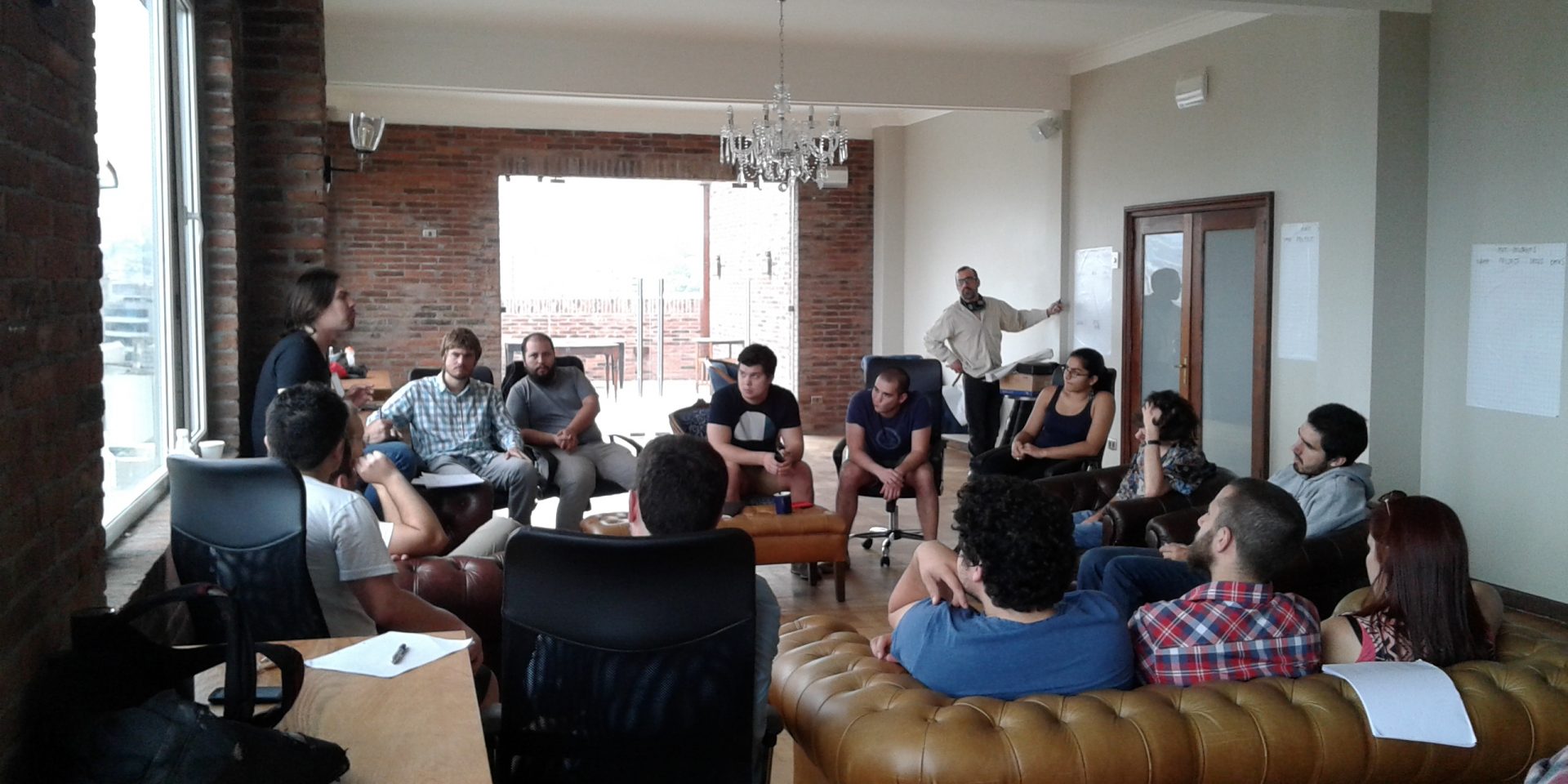

Carlos Rodríguez-Sickert, Director of the Center for Research in Social Complexity, visited the economist and our external collaborator, Christoph Kuzmics, to strengthen the partnership between the research centers. On the occasion, he was interviewed about the Fondef Project “Videogame Platform to measure the willingness to cooperate in the classroom”.
A newly developed computer game should help to reveal harassment and social problems in school courses. The game, which was developed by researchers from Chile, was presented at the Karl-Franzens University in Graz.
Bullying has increasingly become a problem in many school classes in recent years. The new computer game is to support teachers and to examine social structures within a class with accuracy, which would allow intervention before the excess of harassment, say the researchers who developed the project. Recently, the computer game was presented at the Karl Franzens University in Graz.
Playing for money shows how students behave socially
More than 1,000 children in Chile have already tried the game. They played on the tablet with virtual coins that they could give to their fellow players or even keep them. Everyone in the class played against everyone, and at the end the scientists could say, from the way they played, wich children used to be more cooperative or aggressive.
And they could also draw a whole class social network, said Carlos Rodriguez-Sickert of the Universidad del Desarrollo in Santiago, Chile: “After collecting data from many different schools, we were able to find out which network positions the students were at risk of be brutally intimidated, or in which part of the network you could find a harasser”.
AK study on bullying
According to a study by the Styrian Chamber of Labor, more than 60 percent of students in Styria
respondents stated that bullying was part of everyday school life.
The greatest number of cases of mobbing is found in the lower grades.
Game available only in English and Spanish, for now
Children who were willing to give coins in the game were identified as positive and cooperative types of leadership. Children who accepted many coins but did not turn out turned out to be more aggressive types. “The researchers asked the teachers before applying the games to perform an assessment of the children’s social position in the class structure, after the game, the result with social workers and teachers was discussed again,” said Rodríguez-Sickert at the presentation in Graz.
“For example, if we say, ‘Look, there is a student in a very vulnerable position, and the teachers did not see and name that student before, then they will start thinking and saying, maybe I should do more to take care of this child”. Rodriguez-Sickert plans to make the computer game developed available in English and Spanish through a website for teachers soon.
You can read the original text here and hear the interview (in german) in this link.